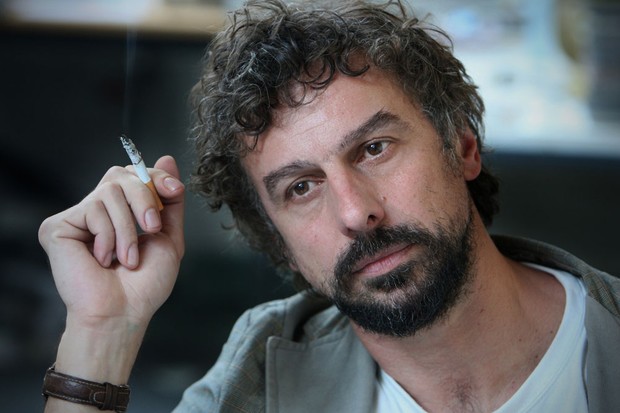Jan Cvitkovič • Director
"The Basics of Killing is a warning"
- Slovenian filmmaker Jan Cvitkovič tells Cineuropa about why and how he made his latest movie, The Basics of Killing

Cineuropa: Where did you get the idea and inspiration for The Basics of Killing [+see also:
film review
trailer
interview: Jan Cvitkovič
film profile]from?
Jan Cvitkovič: A couple of years ago, I worked with children from impoverished families through an NGO that took them on a summer vacation in Kranjska Gora. I went there to make short films with them. The next year, I sent my son Taras and daughter Mala there. I was fascinated by the fact that it was impossible to tell what kind of backgrounds the kids came from, because they learned to hide it perfectly. Later, I found out that some of them lived in terrible circumstances and had experienced things that will always stay with them – the destruction of relationships, the complete collapse of their family, humiliations, children being taken away from parents who were not able to manage in tough economic circumstances, and even the suicides of parents. When they invited me to work with the kids, I was in a very tough financial situation myself. At times I struggled to feed my family. This strongly bonded me to these kids. So the inspiration for The Basics of Killing is deeply personal.
How did you cast the actors and work with them?
I met Primož Vrhovec in Belgrade. We went for a beer, and I knew immediately he was going to play Marko. Dunja is played by my partner, Irena Kovačević. When she read the script, she started crying, and then she told me: "Jan, I really want to play Dunja, and I can do it – I will not let you down." I trusted her, and she even won the Best Actress Award at the Montreal World Film Festival.
I met Ula Gulič, who plays Mala, at a children's playground, where I went with my daughter Mala. We clicked immediately. I knew she would be a peculiar character. When she acts, she has something profound and strangely removed – almost demonic – inside her. For the character of Taras, we did auditions. Hundreds of boys from all over Slovenia auditioned, and I had almost lost hope. Then this kid, Miha Košec, came along, and I liked him immediately. As the script demanded him to do judo training, I asked him if he knew what judo was. He said he was the judo vice-champion of Slovenia, and that was it.
Since I've been making movies, I've been working with actors with the help of Nataša Burger, a Slovenian actress living in Prague. We have developed a special concept of preparations that in the early stages have nothing to do with the screenplay, but are instead dedicated to physical contact, intimate psychological contact, opening up to one's self and to the others, and finally, creating one whole together, which during the shoot turns into the film.
In recent years, Slovenian cinema has increasingly been dealing with the social situation. Does your impulse to talk about it come from a social awareness, or is it more personal?
In the last ten years in Slovenia, many families have suffered misery, shame and impoverishment. I am still angry when I think of the law that was introduced in 2012. The government is now working on fixing it, but it says that a family in which both parents lose their jobs has no access to any kind of help, not even for food, if their salaries had been relatively OK two years prior. Many middle-class families collapsed because of this law.
But the real impulse for this film was deeply personal. When I was researching various cases of such families, at one point I realised what kind of personal tragedies this has led to, how children suffer and hide their pain, and I could not take it any more. I decided to make an appropriate, dignified homage to these people, and especially to the children, who often in these situations take over their parents' burden, and they fight, whatever the cost. At the same time, The Basics of Killing is a warning, because it can happen to anyone.
Did you enjoy reading this article? Please subscribe to our newsletter to receive more stories like this directly in your inbox.















